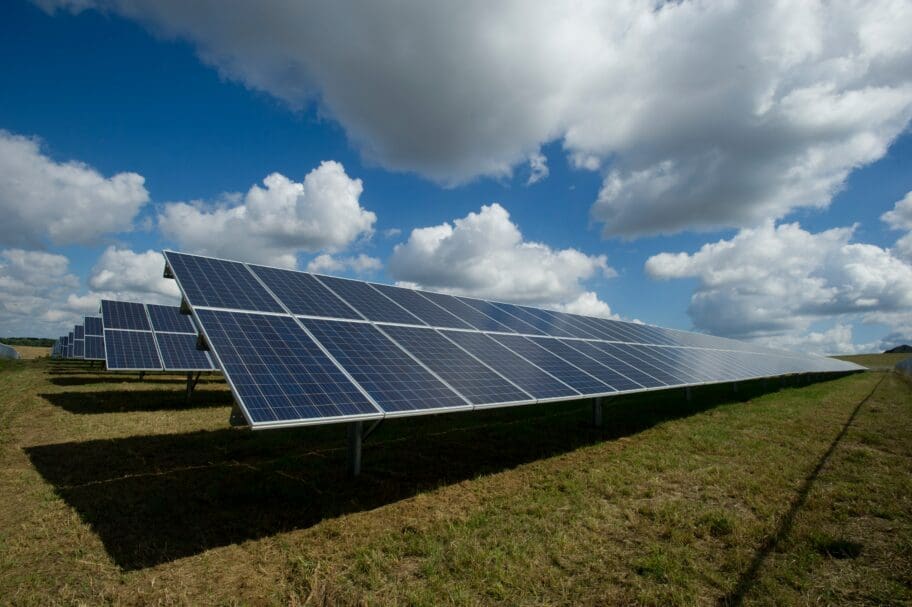The transformative impact of Artificial Intelligence (AI) on the energy sector, particularly in managing smart grid, integrating renewables, and optimizing power plants within the power grid, is undeniable. AI has revolutionized energy production in power plants and distribution via the smart grid, markedly improving efficiency while reducing waste in renewables and the overall power grid. Forecasting plays a pivotal role in predictive maintenance and grid management in the electricity market, enabling power plants and electricity trading companies to optimize their operations. Moreover, AI in energy extends to achieving net-zero emissions in the energy ecosystem, a goal that industry leaders strive for in this transition towards energy efficiency and sustainability. This also includes the optimization of energy grids. The integration of AI intelligence into the smart grid of the energy industry holds significant promise for reshaping the sustainability of the electricity market and trading dynamics.

Unpacking AI Use Cases in Energy
AI Optimizing Power Generation
AI plays a crucial role in optimizing power generation. The smart grid aids in predicting demand and adjusting the supply accordingly, ensuring energy efficiency in trading on energy grids and effective use of resources.
-
Example: A power plant uses AI intelligence to forecast energy consumption on the smart grid based on weather data, reducing wastage and improving electricity trading.
Efficient Grid Infrastructure Management
AI's use extends to grid infrastructure management. The smart grid, with its intelligence, helps detect anomalies, predict outages, and enable swift responses for improved energy efficiency through collaboration.
-
Case Study: An electric company in the energy industry leveraged AI intelligence to predict potential electricity outages, enhancing energy efficiency and decreasing downtime by 20%.
Predictive Maintenance with AI Insights
Predictive maintenance, driven by intelligence, is another significant use case for AI in the electricity sector, as per McKinsey reports, particularly in power plants. McKinsey's intelligence uses machine learning algorithms in the energy industry to predict plant equipment failures before they occur.
-
Statistic: Companies, like McKinsey, using predictive maintenance powered by artificial intelligence in their electricity plant operations have seen a 30% reduction in maintenance costs.
Lower Emissions through AI
Finally, there are cases such as McKinsey's plant where the use of intelligence in the form of AI has helped achieve lower emissions in electricity production. By optimizing operations and improving efficiency, McKinsey intelligence significantly contributes to environmental sustainability in the electricity plant.
-
Social Proof: A recent report demonstrated that companies using AI and plant-based electricity significantly enhanced their intelligence, reducing their carbon footprint by up to 40%.
Optimizing Power Generation with AI
Machine Learning in Energy Production
AI algorithms play a crucial role in optimizing power generation in plant operations. Machine learning, for instance, can predict optimal energy output. By analyzing historical data and weather patterns, it can forecast the most efficient use of resources at power plants.
Neural Networks and Renewable Energy
Neural networks also contribute to managing renewable energy sources. For example, in wind farms similar to the way a plant adjusts to sunlight, neural networks analyze wind speed and direction data to adjust turbine angles for maximum power generation.
Real-Time Data Analysis
Real-time data analysis of plant energy is another critical aspect of AI in the energy sector. It enables plant operators to adjust power generation instantly to meet demand efficiently. For instance, if there's an unexpected increase in electricity usage due to extreme weather conditions, real-time data analysis helps plant operators ramp up production quickly.
Automated Control Systems
Automated control systems offer significant benefits for power plants. Plant systems not only optimize the use of duct burners but also reduce human error chances by automating routine tasks. This plant automation leads to more reliable operations and higher overall efficiency in plant operations.
AI-Mediated Grid Infrastructure Efficiency
Smart Grids and Machine Learning
Smart grids use machine learning for load balancing and plant demand response. This helps energy providers manage plant supply and demand in real-time, improving the efficiency of power lines.
-
Real-time data from smart grid sensors enables dynamic load balancing, optimizing plant operations.
-
Machine learning algorithms analyze plant consumption patterns to predict demand, facilitating optimal resource allocation.
Predictive Analytics and Grid Stability
Predictive analytics can prevent blackouts and maintain grid stability:
-
Algorithms forecast potential system failures based on historical data.
-
Providers can take proactive measures to mitigate risks before they escalate into blackouts.
Automation for Resilience
Automation enhances grid resilience against natural disasters or cyberattacks:
-
Automated systems detect anomalies in the grid, triggering immediate responses.
-
This reduces downtime and prevents cascading failures that could disrupt the entire power chain.
Digital Twins for Infrastructure Planning
Digital twins have improved infrastructure planning in several cases:
-
The digital replica of a physical system allows for testing different scenarios without risking actual infrastructure.
-
For instance, CADE used digital twins to optimize its power grid layout, reducing costs and increasing efficiency.
Predictive Maintenance and AI Insights
Machine Learning Models in Maintenance
Machine learning models are a valuable tool for predictive analytics. By forecasting equipment failures, these models can significantly reduce downtime costs. McKinsey's research shows that machine learning can predict 80% of unplanned outages in certain industries.
Data-Driven Decisions in Maintenance Tasks
Data-driven insights provide an effective way to prioritize maintenance tasks. Using data from various sources, operators can make informed decisions about which machines need immediate attention and which ones can wait. This approach leads to significant resource savings.
Role of IoT Sensors and AI
IoT sensors combined with artificial intelligence offer continuous health monitoring of systems. These sensors gather information about machine performance, weather conditions, and other factors that could impact system health. The collected data is then analyzed by AI algorithms to identify potential issues before they become critical.
Predictive Analytics Extending Asset Life Span
Predictive analytics has proven its worth in extending asset life span:
-
A software company used predictive analytics to extend the life of their servers by 20%.
-
An energy company employed machine learning models to increase the lifespan of their turbines by 15%.
By implementing predictive maintenance strategies using AI, companies not only improve their operations but also ensure data security through constant monitoring and analysis of system health.
Remember, successful application of AI in energy requires expertise in both technology and industry-specific knowledge. It's not just about having the right tools; it's also about knowing how to use them effectively.
Achieving Net-Zero Emissions with AI
Artificial intelligence (AI) is a game-changer in the pursuit of net-zero emissions.
AI and Carbon Capture
AI aids carbon capture technologies, offering a promising approach to reduce greenhouse gas emissions. For instance, data scientists use machine learning algorithms to optimize the carbon capture process. The result? A significant percent improvement in carbon reduction.
Machine Learning for Energy Optimization
Machine learning also plays a pivotal role in optimizing energy consumption patterns. A case in point is Wayne Enterprises’ digital twin technology. It leverages AI to simulate various production scenarios, leading to more efficient energy use and lower emissions.
Predicting Impact with AI
AI can model and predict the impact of various emission reduction strategies. This planning tool is crucial for sustainable development work towards climate goals.
-
Scenario Simulation: Using historical data, AI models can simulate different emission reduction scenarios.
-
Impact Prediction: Based on these simulations, predictions are made about potential environmental impacts.
-
Strategy Development: These insights guide the development of effective emission reduction strategies.
Renewable Energy Management
Lastly, AI serves as an ally in managing and optimizing renewable energy sources:
-
Solar Power: Digitalization through AI can forecast sunlight availability for solar plants.
-
Wind Energy: Machine learning models predict wind patterns for optimal turbine operation.
-
Energy Trading: Algorithms facilitate efficient trading of surplus renewable energy.
SMB Owners' Guide to AI in Energy
Smart Metering Systems
Small businesses can reap significant advantages from smart metering systems powered by AI. These systems facilitate efficient energy use, leading to cost reductions. Gas companies offer a variety of these affordable AI solutions.
-
Accurate real-time energy usage data
-
Automated adjustment of energy consumption based on need
-
Alerts for abnormal energy usage patterns
Optimizing Energy Consumption
AI solutions also assist in optimizing energy consumption, further reducing costs. They analyze the data from smart meters and make recommendations for improvements.
-
Identify peak times for energy use
-
Suggest adjustments to reduce peak time consumption
-
Propose changes to equipment or processes that consume excessive energy
Predictive Maintenance Benefits
Leveraging predictive maintenance can help SMBs avoid unexpected equipment failures, resulting in additional savings. This involves using AI algorithms to predict when equipment might fail so it can be serviced proactively.
-
Early detection of potential issues
-
Prevention of costly downtime
-
Extension of equipment lifespan
ROI Potential with AI Technologies
Adopting AI technologies in energy management offers a promising return on investment (ROI). The initial cost may seem high, but the long-term savings and efficiency gains quickly offset this expense.
-
Reduction in overall operational costs
-
Increase in productivity due to less downtime
-
Enhancement of business sustainability efforts through lower carbon footprint
Data sharing between different systems and devices facilitates all these benefits, making it an integral part of implementing AI in your business's energy management strategy.

Embracing the AI Revolution in Energy Sector
The transformative impact of Artificial Intelligence (AI) on the energy industry is undeniable. It's clear that AI has a pivotal role to play in optimizing power generation, enhancing grid infrastructure efficiency, enabling predictive maintenance, and driving us towards achieving net-zero emissions. Small and Medium-sized Business (SMB) owners too can leverage these advancements for their benefit.
AI's potential for ushering in a new era of clean, efficient, and sustainable energy is immense. However, its success depends significantly on widespread adoption and understanding. Therefore, it's imperative to stay informed about the latest developments and consider how they might affect your business or daily life. Let's embrace this revolution together - explore more about AI in energy today.
FAQs
What are some practical examples of AI use cases in energy?
AI is used extensively in the energy sector for various purposes such as predicting equipment failures, optimizing power generation by forecasting demand and supply patterns, improving grid infrastructure efficiency through smart grids, and even aiding efforts towards achieving net-zero emissions.
How can SMB owners benefit from using AI in energy?
SMB owners can utilize AI technologies to optimize their energy usage patterns which can result in significant cost savings. Also, predictive maintenance enabled by AI can help prevent unexpected equipment failures thereby reducing downtime.
Is AI necessary for achieving net-zero emissions?
While not solely responsible, AI plays a crucial role in efforts towards achieving net-zero emissions. It helps optimize energy consumption patterns and enables more efficient use of renewable resources thereby contributing significantly to sustainability goals.
What are some challenges faced when implementing AI solutions in the energy sector?
Implementing AI solutions often requires significant investment both financially and time-wise. Issues related to data privacy and security need careful consideration during implementation.
How does predictive maintenance work with the help of AI?
Predictive maintenance uses machine learning algorithms to analyze data from various sources like sensors on equipment. This analysis can predict potential failures before they happen, allowing for timely maintenance and preventing costly breakdowns.

Article by
Titus Mulquiney
Hi, I'm Titus, an AI fanatic, automation expert, application designer and founder of Octavius AI. My mission is to help people like you automate your business to save costs and supercharge business growth!
